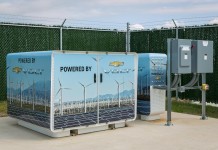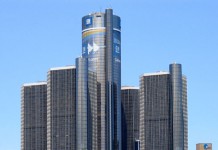General Motors Europe announced on Thursday it is to close an entire car production plant in Belgium, making 2,600 workers redundant and ramping up an already tense climate of social unrest.
“Our intention today is to stop production in a matter of a few months,” new chief executive Nick Reilly told a Brussels press conference, suggesting June or July as the likeliest date.
A new line of small sports utility vehicles will now be built in South Korea instead, he said.
It is the second major factory closure announced by carmakers in Europe this month, after Italy’s Fiat acted to shut a plant in Sicily.
Europe-wide restructuring at GM’s Opel unit is expected to shed 8,300 jobs from a total of almost 50,000 — half of which are located in Germany.
Reilly said that about 4,000 of the jobs going would be German positions.
The Belgian factory in northern Antwerp, home to the world’s biggest diamond market and one of the world’s five largest ports, is the only GM plant so far to face being locked up.
Reilly said there was no alternative, and rejected ideas that the plant could be adapted for components manufacturing — as discussed during the US parent company’s earlier plan to sell its European arm.
“It’s not GM’s intention to get into the components business,” he said.
Joeri, who has worked for Opel for 22 years, said: “We are seen as antiquated objects.”
“It’s an absolute catastrophe for Belgian workers and manufacturing,” added Walter Cnop, of the CSC union’s metalworkers’ branch.
Slamming management “arrogance” and a decision he said was “based on political considerations in no way assessed on economic grounds,” Cnop immediately announced an open-ended blockade.
Cnop said that from Tuesday of next week, “the factory will remain blocked until such time as we decide to let finished cars out.”
Belgian industry federation Agoria warned that at least 5,000 jobs could be lost due to knock-on effects.
An emergency meeting with the office of Belgium’s devolved Flemish government leader Kris Peeters later on Thursday will precede redundancy and resettlement talks.
Reilly said he understood workers’ disappointment and anger, but underlined: “We have cars for them to build and we’d like to continue normal work” until the gates close for the last time.
Opel needs 3.3 billion euros ($4.7 billion) to finance its new business plan, and hopes to get 2.7 billion euros from countries where Opel and its British sister brand Vauxhall have operations.
Germany originally offered the bulk of the sums Magna wanted, but faced a political backlash based on European Union state aid rules as rival plants sensed they would be tossed on the scrapheap in order to keep Germans in work.
Antwerp unions have consistently maintained that a plant in Bochum, western Germany, had a weaker economic case, and called for European labour solidarity.
Employee and union representatives accused management of breaching a contract with the company’s European Works Council on the SUV line, saying Antwerp employees had already been engaged on the project since 2007.
“Our projection of how many of those we will manufacture has gone down,” said Reilly of a slump in demand globally for 4×4 cars, adding that it would be “more economic” to build them in Korea.
The Antwerp closure comes at a time of sensitive industrial relations in Belgium, as elsewhere.
The world’s biggest brewer AB Inbev, maker of famed Belgian beer brands such as Stella Artois, Leffe or Hoegaarden, risks being unable to meet distribution requirements in its home or surrounding countries owing to blockade action in protest at job cuts.
Belgian firefighters also mounted a spectacular protest over career prospects on Thursday, spraying government buildings and main traffic arteries with foam, while prison guards are themselves out on strike amid complaints over working conditions.








